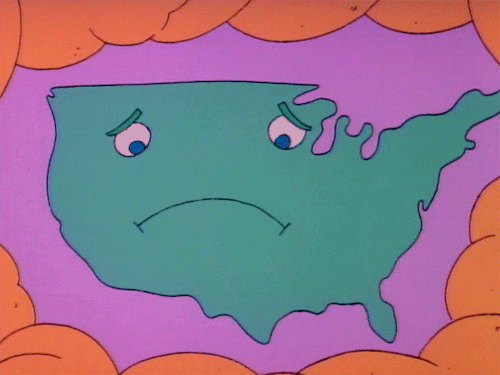๋࣭ ⭑⚝FRIDAY THE 13TH!!! ๋࣭ ⭑⚝
๋࣭ ⭑⚝FRIDAY THE 13TH!!! ๋࣭ ⭑⚝

Friday the 13th is widely recognized as a day imbued with superstition, mystery, and unease. Over time, it has come to symbolize bad luck, but its origins are rooted in a complex blend of religious, cultural, and numerological elements.
The Origins of the Friday the 13th Superstition
The superstition surrounding Friday the 13th is derived from two key elements: the number 13 and the day Friday, each with its own historical and cultural connotations.
In Western cultures, the number 13 has long been considered unlucky, a fear known as "triskaidekaphobia." This aversion is often linked to Christian traditions, particularly the Last Supper, where Jesus dined with twelve apostles, making Judas Iscariot, who betrayed Jesus, the thirteenth guest. This association with betrayal and misfortune has entrenched the number 13 in the Western cultural consciousness as a harbinger of bad luck.
Similarly, Friday carries its own historical baggage. In Christian tradition, Friday is the day of Jesus Christ's crucifixion. This connection to tragedy led medieval and Renaissance societies to view Friday as an inauspicious day for significant events like weddings or voyages. Over time, the negative connotations of Friday merged with the fear of the number 13, culminating in the superstition of Friday the 13th.
The Templar Connection: Medieval Myths
One prominent historical explanation for the superstition surrounding Friday the 13th is the persecution of the Knights Templar in the early 14th century. On Friday, October 13, 1307, King Philip IV of France ordered the arrest of hundreds of Templars, accusing them of heresy and other crimes. Many were tortured and executed, marking the fall of the Templars and contributing to the perception of Friday the 13th as a day of betrayal and misfortune. Though this theory is speculative, it remains a popular explanation for the superstition.
Numerology and Symbolism of 13
Numerology also plays a role in the negative perception of the number 13. The number 12 is often seen as complete—reflecting the 12 months in a year, 12 zodiac signs, and 12 hours on a clock. In contrast, 13 is viewed as an imbalance, symbolising chaos and unpredictability. This view has influenced both ancient and modern thought, reinforcing the belief that 13 is unlucky.
Modern Pop Culture and the Persistence of Friday the 13th
In contemporary times, the superstition of Friday the 13th has evolved, largely through pop culture. The "Friday the 13th" film franchise, which began in 1980, has cemented the date’s association with horror. The franchise not only popularized the date as a symbol of fear but also contributed to its status as a cultural phenomenon, marked by horror-themed events and media.
Moreover, psychological studies have explored how this superstition affects behaviour. Many people express unease or avoid certain activities on Friday the 13th, reflecting how deeply ingrained superstitions can influence modern behaviour. Research indicates that these fears can lead to real-world actions, such as avoiding travel or postponing events, highlighting the ongoing impact of superstitions.
Friday the 13th is a unique cultural artefact, blending ancient fears with modern pop culture. Its origins are linked to religious traditions, historical events like the Templar persecution, and cultural aversions to the number 13 and the day Friday. These elements have fused into a superstition that continues to captivate and influence people today. Whether seen as a day of misfortune or a cultural curiosity, Friday the 13th exemplifies how myths and superstitions endure and shape human behaviour across generations.

happy friday the thirteenth :3
More Posts from Tjthevampyre and Others


Can I get a standing ovulation? 🧏🏽♀️



especially the scene introducing talokan
what i would do to see bpwf again for the first time…


Rugrats | s01e03 “At the Movies”

I just found out two local gay artists were found murdered in their home. fuck. jesus. I knew these guys. I own their art. I've attended so many gallery openings at their shop. they've meant so much to the community here. and they're just fucking gone? just like that?
and of course the cops are claiming it's not a hate crime.

I don't EVER wanna hear you say they don't know how to act again.


-
 manofmidgard liked this · 4 months ago
manofmidgard liked this · 4 months ago -
 trashy-d3ath liked this · 7 months ago
trashy-d3ath liked this · 7 months ago -
 idez11 liked this · 8 months ago
idez11 liked this · 8 months ago -
 justanameonfire liked this · 8 months ago
justanameonfire liked this · 8 months ago -
 monsu liked this · 8 months ago
monsu liked this · 8 months ago -
 qaaqsxh liked this · 8 months ago
qaaqsxh liked this · 8 months ago -
 victoriaa73 liked this · 8 months ago
victoriaa73 liked this · 8 months ago -
 shork3chomp liked this · 8 months ago
shork3chomp liked this · 8 months ago -
 eerietombs liked this · 8 months ago
eerietombs liked this · 8 months ago -
 amyosias liked this · 8 months ago
amyosias liked this · 8 months ago -
 tjthevampyre reblogged this · 8 months ago
tjthevampyre reblogged this · 8 months ago -
 tjthevampyre liked this · 8 months ago
tjthevampyre liked this · 8 months ago -
 prescriptiongrl reblogged this · 8 months ago
prescriptiongrl reblogged this · 8 months ago -
 prescriptiongrl liked this · 8 months ago
prescriptiongrl liked this · 8 months ago -
 laughter-like-a-headache reblogged this · 8 months ago
laughter-like-a-headache reblogged this · 8 months ago -
 beforeviolets reblogged this · 8 months ago
beforeviolets reblogged this · 8 months ago -
 trashshrooms reblogged this · 8 months ago
trashshrooms reblogged this · 8 months ago -
 trashshrooms liked this · 8 months ago
trashshrooms liked this · 8 months ago -
 rayspookyhistory liked this · 8 months ago
rayspookyhistory liked this · 8 months ago -
 rayspookyhistory reblogged this · 8 months ago
rayspookyhistory reblogged this · 8 months ago
